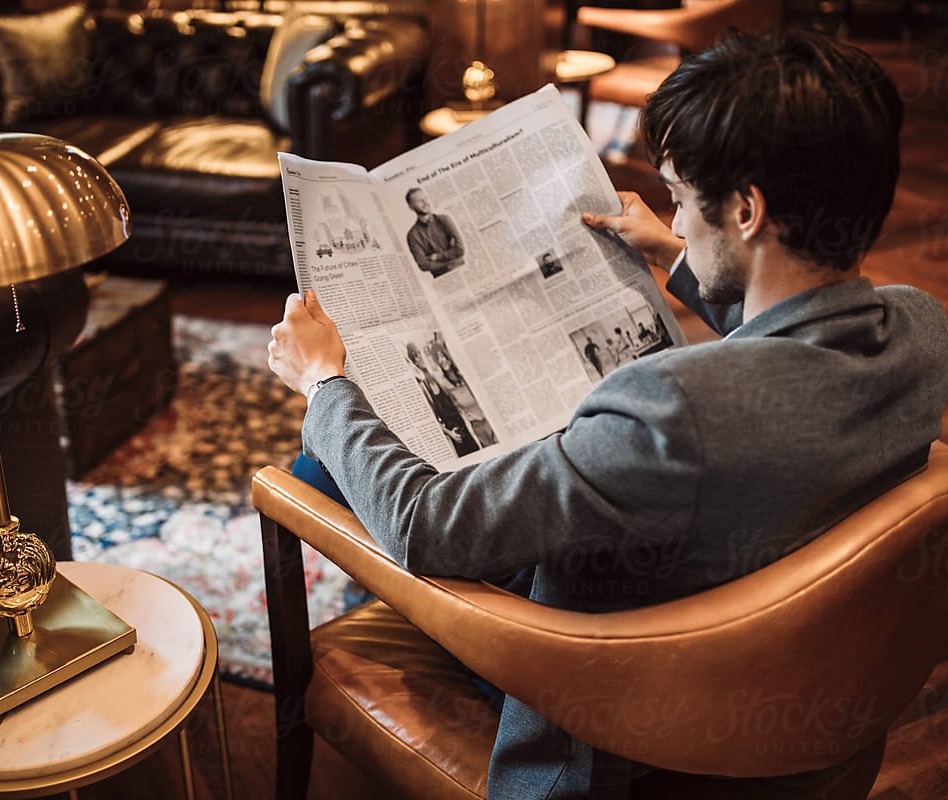Back to the F**kture: Peter Cole
As private membership clubs try to regain their privacy and mojo, on this week’s Back to the F**kture podcast The Future Laboratory’s co-founder Martin Raymond talks with hospitality entrepreneur Peter Cole about how they could go about doing it – and at scale.
The problem with most private members’ clubs is that they’ve become too public. While luxury itself has returned to being gated, exclusive, bespoke and more personalised as our Gilded Luxury macrotrend explores, members’ clubs, with few exceptions have become ubiquitous, inclusive, open and – depersonalised. You’ve been to one, you’ve been to them all. Same drinks, same DJ, same gong bath therapy in the gym, same Taylor Swift covers in the lift. Not quite what you signed up for!
And many of us, for that reason, are resigning, and decamping. Spotting this, my guest on this week’s Back to the F**kture – serial entrepreneur Peter Cole – has come up with a potential solution: a back-end system that allows clubs to front-end their cultural appeal once more.
Travel and hospitality trade types among you will know Cole from his days at Marriott, and as CEO of Design Hotels. For many of us Promadic traveller types (a term we coined for the Design Hotels team, by the way), this brand was the precursor to how hotels should be – more like a club than a crash pad. Furthermore, Design Hotels showed how other organisations should look and feel in the world of hybrid work and work-focused hang-outs.
‘There are lots of small, nimble, independently owned private members clubs globally, all with a unique USP. But they all have back-of-house services that cost a lot of money to manage, and front of house attractions – culture programmes, DJs, events, club nights – that are prohibitive to manage if you want these to have a presence,’ Cole tells me. So, with that in mind, and after a lot of talk with clubs in the UK, US and Europe, he’s launched Collectio Group, ‘which is all about connecting membership-based hospitality operations’.

He just wanted clubs to focus on their members again, and their community. ‘This what to think about when talking about clubs – community, belonging, being,’ he stresses. ‘Yet a lot of independent club owners find that they’re increasingly occupied by the bits members can’t see, and thus they neglect, or can’t afford to invest in, what the members need – fun, entertainment, service and experience!’
But Cole’s ambitions go beyond a platform that takes the effort out of hospitality logistics: ‘Done in the right way, it can also help clubs to generate revenues and bring the international to the local scene.’
He plans to use the clout of his growing number of international members to collaborate with brands, and cultural institutions to use the ecosystem of clubs as powerful exhibition and event spaces, targeting a discerning, challenging and inquisitive global audience. ‘It also means you can tour the kind of culture programmes, artists, DJs, authors and performers that smaller, independent neighbourhood clubs may not have been able to afford. Through the Collectio platform, negotiations can be done and programmes organised at a more manageable and negotiable scale.’
But as Cole explains, this could just be the beginning of the Collectio journey. Naturally, he understands that property developers, faced with the on-going reality of TWAT days (Tuesday, Wednesday and Thursday in the office), and global organisations that are keen to consider what community means in the new Work States landscape, could also avail of the service.
‘They talk about shopping, work and retail precincts in community terms, and see them as social spaces or experiential hubs, but they don’t manage them as such. It’s still seen to be a marketing exercise – the food truck, the pop-up labradoodle parlour, the breakfast juice bar – then they expect office workers, retailers and precinct users to do the rest.
‘It won’t work like that. These places really have changed, and like hotels or private members’ clubs, they have to be managed, programmed or considered as cultural venues in their own right that need to be produced, directed and orchestrated, not filled with food wagons or noodle stalls.’
You can find out more about Peter Cole and the Collectio Group on my Back to the F**kture podcast.
